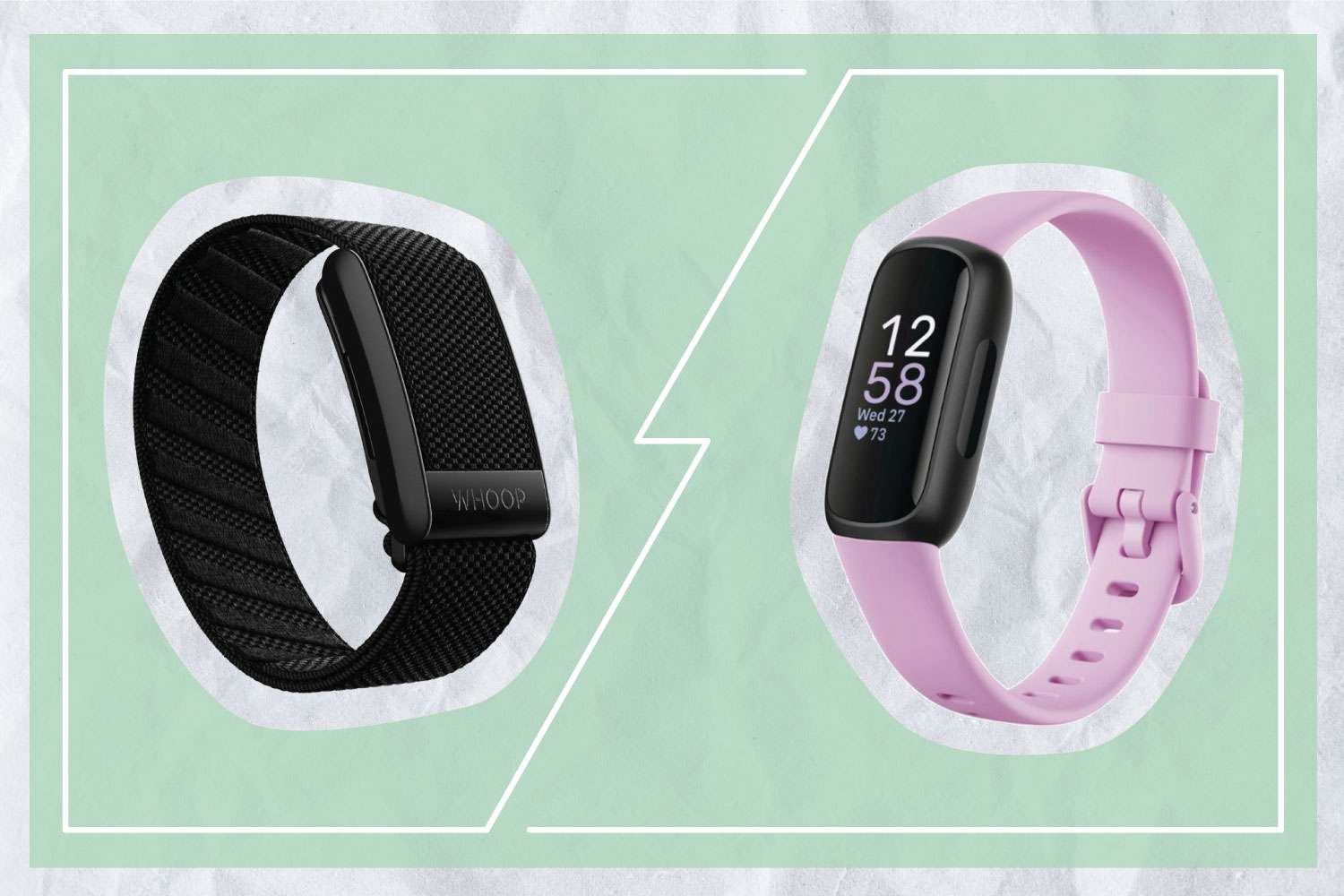Navigating Ethics and Efficacy in Fitness Tracking Apps

Table Of Contents
Investigating the Efficacy of Fitness Trackers
Introduction
For my final project, I decided to investigate the efficacy of fitness trackers like Whoop, Garmin, Fitbit, and Apple Watch, and assess whether their benefits outweigh their detriments. I am researching whether or not fitness trackers are morally and literally good for people or if they cause any ethical harm to people. I decided to study this because I am working on a project that will eventually shift towards making fitness trackers, so I want to research if they are effective, if people trust them, and if there are any dangers in having them around. There are about 70 million people in the America, roughly 20% of all Americans, wearing a fitness tracker, including me, so this topic is also relevant to many people across the United States.
Benefits of Fitness Trackers
Some benefits of these fitness trackers are that they offer valuable insights into users' health metrics, such as step count, which can serve as a drive for adopting healthier lifestyles. Additionally, some fitness watches with apps like Garmin provide coaching advice for activities like running, which can give guidance and accountability. Many of these apps offer features such as goal-setting and progress tracking which can further enhance users' motivation and accountability. Health tracking apps also have the potential to promote a sense of community and social support among users, particularly through features such as challenges, leaderboards, and online forums. By connecting with others who share similar health and fitness goals, users can feel a sense of belonging and encouragement, which can be instrumental in sustaining their motivation over time.

Concerns about Fitness Trackers
However, there are concerns regarding data privacy and security. Many users may not be aware of the extent to which their personal health data is being collected, stored, and potentially shared with third parties. There is also risk in health tracking apps promoting unhealthy behaviors or providing toxic, unrealistic body ideals. For example, some users may become overly fixated on achieving arbitrary step counts or calorie targets, leading to obsessive or disordered eating habits. Similarly, the constant comparison with others' achievements on social features could contribute to feelings of inadequacy or low self-esteem. By analyzing these apps comprehensively, I hope to provide a clearer understanding of their impact on user health and well-being.
Initial Thesis and Methodology
My initial thought is that health tracking apps offer more benefits than detriments because I think that helping people gain healthy habits is slightly more beneficial than selling data is detrimental. Throughout this essay, I will be arguing from both a Utilitarian point of view and from a Deontological point of view to compare the ethics and see if they change between ideologies. I will also refer to several articles that are listed in the bibliography.
Defending Fitness Trackers

Benefits of Sharing Data
I will first defend fitness trackers by discussing the benefits of sharing data. According to Mohamed Abdelhamid, author of “Fitness Tracker Information and Privacy Management: Empirical Study,” information being shared with health care providers can help patients out a lot. Abdelhamid says that sharing personal data with healthcare providers can allow physicians to better understand the patient’s lifestyle, issues, and potential health problems soon to give early recommendations that can avoid health problems. This is a good example of reasons that tracking data can be beneficial to users. Abdelhamid also says that over 93% of healthcare institutions have had data breaches in just the last 5 years, which is very scary to think about. However, I think from a utilitarian point of view the good from sharing medical information is more impactful than the leaked data. I think this is true because people would rather have a healthy life and leak medical information than the other way around. Also, looking at it from a math point of view, you are less likely to have data leaks, but if you give your information to a doctor, there is a really good chance they can use that data to prolong your life.
Safety Measures for Privacy
I also want to defend fitness trackers’ safety of privacy by mentioning how lead fitness trackers - Fitbit, Whoop, and Apple Watch - all practice safety measures to keep sensitive information safe. According to Data Column’s ““Fitness Trackers’ Ethical Use of Data,” all 3 companies exercise transparency in its data collection.
-
Apple users are provided clear and concise explanations of how the data is being used and Apple allows its customers to customize data-sharing settings.
-
Fitbit, similarly, provides detailed privacy policies and allows users to control their data and how third party apps can see them.
-
Finally, Whoop heavily focuses on the user’s control over their data.
Since the leading fitness trackers all allow users to have control over their data and where it is being sent, it means that the data is being put in the customer’s hands, and not shared randomly. This shows that companies are acting morally good from the deontological point of view. Companies are treating customers as rational beings and giving them control and also are concerned with the intent of where the data goes and not the outcome of it getting leaked or not. A utilitarian might see this slightly differently by not caring about whether or not it is purposefully shared but whether or not there will be a data breach. Data breaches are inevitable and may happen, but at least companies are trying to put the data in the hands of the customers rather than being greedy and using it for themselves.

Effectiveness in Promoting Exercise
Fitness trackers have also been shown to be effective in getting people to exercise. According to Sweat, fitness trackers can get people moving for up to 1 mile more than they would without a step goal. One study shows that activity trackers can add approximately 1800 steps, 40 extra minutes of walking, and an extra 6 minutes of vigorous physical activity. These results have also been shown to last 6 months, creating long lasting healthy habits. Another article, “The Impact of Weekly Workouts on Self-Reported Happiness Among College Students,” by Reid Davis, says that there is a positive correlation between self reported/perceived happiness and the amount of activity a person does each week. Students who did not exercise were shown to be depressed, but students who exercised just 30 minutes a week would already feel way better about themselves. A utilitarian would support the use of fitness trackers because it is clearly adding a positive outcome of getting people to exercise which is directly correlated with happiness.
Conclusion
In conclusion, the investigation into the efficacy of fitness trackers has shed light on their multifaceted impact on individuals' health and well-being. Despite concerns surrounding data privacy and security, the benefits of these devices in promoting healthy habits and physical activity just outweigh them. Through the lens of Utilitarianism, the potential for fitness trackers to enhance users' health outcomes outweighs the risks associated with data breaches, as evidenced by their positive correlation with increased physical activity and self-reported happiness. Moreover, from a Deontological perspective, the ethical practices of leading fitness tracker companies, such as Fitbit, Whoop, and Apple, in prioritizing user control over data demonstrate a morally good practice and respect for individual autonomy. By considering both ethical frameworks, it becomes clear that while there are legitimate concerns to address like data breaches and fitness toxicity, the overall impact of fitness trackers leans towards the promotion of healthier lifestyles and improved well-being. As technology continues to evolve, it will be essential for both users and companies to remain cautious in balancing the benefits and risks associated with health tracking apps, ensuring that ethical considerations remain at the front of everyone’s mind during innovation.
Bibliography
Abdelhamid, Mohamed. “Fitness Tracker Information and Privacy Management: Empirical Study.” Journal of Medical Internet Research, U.S. National Library of Medicine, 16 Nov. 2021, www.ncbi.nlm.nih.gov/.
“Can Fitness Trackers Improve Your Health?” Sweat, 1 May 2023, sweat.com/blogs/fitness/can-fitness-trackers-improve-your-health.
Corliss, Julie. “Do Fitness Trackers Really Help People Move More?” Harvard Health, 1 June 2022, www.health.harvard.edu/heart-health/do-fitness-trackers-really-help-people-move-more.
Davis, Reid. “The Impact of Weekly Workouts on Self-Reported Happiness Among College Students.” https://sc.edu/about/offices_and_divisions/.
“Fitness Trackers’ Ethical Use of Data.” Data Column | Institute for Advanced Analytics, 19 Jan. 2024, datacolumn.iaa.ncsu.edu/blog/2024/01/19/fitness-trackers-ethical-use-of-data.
“Gender Bias in Health & Fitness Apps.” WinterSchool2020QGenderBiasInHealthFitnessApps < Dmi < Foswiki, 23 June 2020, www.digitalmethods.net/Dmi/WinterSchool2020QGenderBiasInHealthFitnessApps.